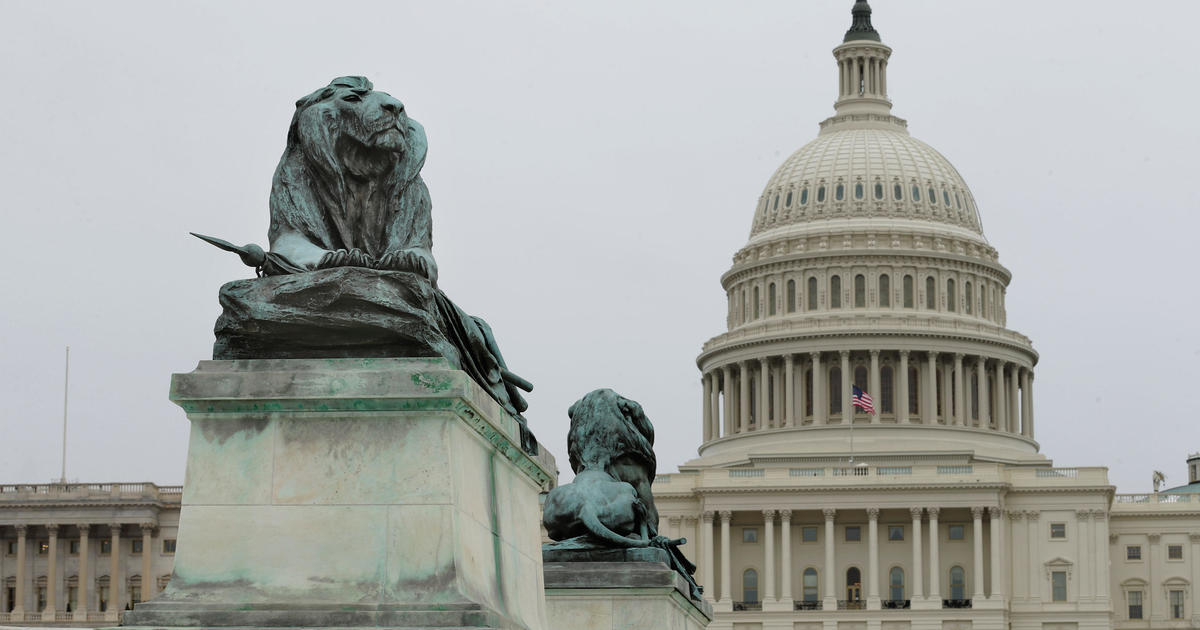
Administration officials who briefed senators this week on the U.S. strike that killed Iranian military leader Qassem Soleimani did not tell the senators that there was also an attempt the same day to target the Islamic Revolutionary Guard Corps (IRGC) leader in Yemen, two sources familiar with the briefing told CBS News.
Senators were also not apprised of a plot to target four U.S. embassies in the region, which President Trump disclosed during an interview to air Friday evening with Fox News’ Laura Ingraham. Mr. Trump also told Ingraham that the embassy in Baghdad was “probably” among the targets.
The sources said based on what was relayed in the briefing, a plot against a U.S. embassy or embassies would be plausible. But this was not specifically disclosed by the briefers. Secretary of State Mike Pompeo, CIA Director Gina Haspel, Defense Secretary Mark Esper, Joint Chiefs Chairman Mark Milley and acting Director of National Intelligence Joseph Maguire briefed the House and Senate on Wednesday.
Two senators also told CBS News that neither of these issues came up.
“Didn’t get a lot of detail,” one said.
Another said, “I have not seen anything on planned attacks on embassies.”
Connecticut Senator Chris Murphy, a Democrat, wrote on Twitter late Friday that he requested a follow-up briefing from the director of national intelligence because, he said, the administration omitted information in the briefing this week.
CBS News has confirmed the Washington Post report that on the same day as the strike on Soleimani, the U.S. unsuccessfully tried to kill another key elite Iranian Quds commander, Abdul Reza Shahlai, who heads the IRGC in Yemen.
Shahlai, the government says, was involved in the Café Milano plot, a 2011 plan by Iran to assassinate the Saudi ambassador to the U.S., Adel Al-Jubeir while he was in the U.S., at a restaurant in Georgetown, in Washington, D.C., and then to bomb the Saudi and Israeli embassies in Washington, as well as a target in another country.
The Treasury Department says that Shahlai approved $5 million to recruit people to carry out the assassination and attacks. The U.S. offered a $15 million bounty for information about Shahlai and the IRGC financial networks in Yemen.
The government also says Shahlai had a role in one of the more brutal operations carried out against U.S. forces during the Iraq War. In January 2007, according to the Defense Department, a dozen insurgents dressed in U.S. Army-styled combat uniforms slipped by Iraqi police at checkpoints to gain passage to a coalition facility in Karbala, where they attacked U.S. troops with rifles and hand grenades. The insurgents killed one soldier with a hand grenade before kidnapping four U.S. soldiers, whom they drove to a neighboring province, where they shot and killed all four. A U.S. military official said a few months after the attack that Iran was using Hezbollah to arm Shiite militants in Iraq and that U.S. intelligence had revealed that the Quds Force had prior knowledge of the Karbala attack.
David Martin, Ed O’Keefe and Margaret Brennan contributed to this report.

